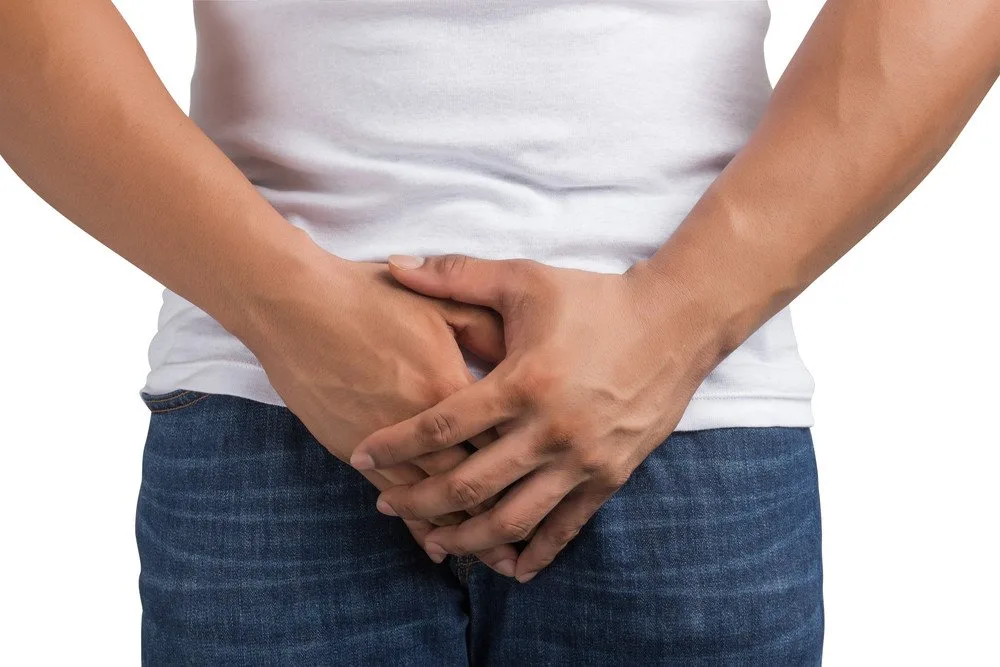Being the topic of countless debates, social media buzz, and its fair share of memes, No Nut November has truly become an annual phenomenon, with men globally challenging themselves to abstain from masturbation and ejaculation for the whole month. With the world now being more conscious of their health and well-being, this annual challenge is now being questioned, especially in terms of its health benefits (or lack thereof).
Now before we get into endless debates and hear what the experts have to say from a health perspective, it is important to note that it is Men’s Health Awareness Month. It is, therefore, necessary that we shed light on a crucial “nut” matter that many have tried to link to this challenge: Testicular Cancer.
Testicular Cancer
Although it is a rare form of cancer (affecting about 1 in 250 males), testicular cancer is the most common cancer among men that are 15-35 years of age. Testicular cancer can be defined as the growth of cells that begin in the testicles. Typically beginning in germ cells (responsible for sperm production), this cancer forms when cells multiply at a faster rate than usual, leading them to clump together and form a lump or tumor in the region.
Over time, this tumor can expand beyond the testicle, with cancer often spreading to the lungs, liver, and lymph nodes. In the event that cancer reaches this stage, the survival rate is 73% (a decrease of 26% from the 99% survival rate if cancer hasn’t spread beyond the testicles, which further emphasizes the importance of early detection.

ruigsantos/shutterstock
Dr Michele Vanzaghi, a medical doctor, was diagnosed with testicular cancer at the age of 25 but survived it thanks to early detection and screening. “There needs to be (an) emphasis on early detection and screening rather than management, through awareness campaigns and education,” he says, emphasizing how prevention is better than managing.
Disparities in cancer education amongst men and women
Now in complete remission, Dr. Vanzaghi aims to raise awareness of this cancer. “There is a lot of awareness with regard to breast cancer in young women, including routine screening. But men don’t know they need to do it (too) (for testicular cancer),” Dr. Vanzaghi says, which speaks volumes about how they need to be more aware and informed about this cancer.
As it is a cancer that affects the youth the most, and in this age of social media, this raises the question: Why is there such a lack of education and information on it for men, both young and old? This is especially true in comparison to breast cancer (where girls are raised to be aware of the symptoms of the cancer from a young age, the available treatments, and mammograms).
Symptoms to look out for
Symptoms of this cancer can include:
- a feeling of heaviness or a sudden buildup of fluid inside the scrotum
- a change in the shape or size of the testicle
- dull pain in the lower belly or groin area, and enlargement or tenderness of the breast tissue.
It is usually advised that you visit your doctor if you pick up on any symptoms that last longer than two weeks (typically pain, swelling, or lumps).
Similar to breast cancer, self-examination is extremely important for men’s health. It is advised by the Cancer Association of South Africa (CANSA) that men conduct Testicular Self-Examinations (TSE) every month. Doing this allows one to be familiar with the normal size, feel and look of their testicles. This makes it easier to pick up on any abnormalities.
Does not masturbating really lead to testicular cancer?
Now to one of the most frequently asked questions during No-Nut November: Can masturbation lead to testicular cancer? According to Dr. Bruce Dezube, a urologist and the Head of Clinical Development at Mustang Bio (a pharmaceutical company with a focus on cancers), “exceptionally NO!”.
This question usually arises as a way of scaring people into participating in this global abstinence trend. But, what do the experts have to say? Do you have any health benefits and should men prioritize participating?
The expert advice
Dr. Rena Malik, a urologist, states that participating in “No Nut November” causes men to miss out on health benefits. One of the benefits is decreasing your risk for prostate cancer.
According to the Harvard Medical School, men who averaged 4.6-7 ejaculations a week were 36% less likely to be diagnosed with prostate cancer before the age of 70 than those who ejaculated less than 2.3 times a week.
Now, while research is still being conducted to figure out whether ejaculation assists with prostate health, many experts believe that it flushes out harmful chemicals that might build up in semen, and potentially lead to prostate cancer.

Photo by Deon Black on Unsplash
Bobby Box, a certified sex educator, states that the only time when one should consider limiting masturbation is when it becomes (too) frequent.
So what are the implications of over-indulging in this self-pleasure?
Priyanka Bhattacharjee, a licensed and practicing Clinical Psychologist, says that excessive masturbation drains the neurotransmitter acetylcholine, which is important for learning, memory, attention, and muscle control. In turn, the fatigue arising from ejaculation that makes one feel a bit too relaxed “affects one’s concentration and their ability to retain information”.
To nut, or not to nut?
From a health perspective, masturbating only has negative effects on the body once it builds into an addiction. Also, the health benefits are still undergoing expert research. So should men be participating in No Nut November? With men opting to participate for various reasons (including gaining mental clarity and exercising self-control), it depends on the individual.
The one thing we’re certain about, though?
Those testicles need to be examined on a regular basis. Doing so will allow one to be able to pick up on abnormalities that may require a doctor’s visit. So whether you’re ignoring masturbation this month, don’t ignore your testicular health.
MAIN IMAGE CREDIT: Butsaya/Shutterstock
References
- Cheng, L., Albers, P., Berney, D.M., Feldman, D.R., Daugaard, G., Gilligan, T. and Looijenga, L.H., 2018. Testicular cancer. Nature Reviews Disease Primers, 4(1), pp.1-24.
- Ugurlu, Z., Akkuzu, G., Karahan, A., Beder, A., Dogan, N., Okdem, S. and Kav, S., 2011. Testicular cancer awareness and testicular self-examination among university students. Asian Pac J Cancer Prev, 12(3), pp.695-698.



![women [longevity live]](https://longevitylive.com/wp-content/uploads/2020/01/photo-of-women-walking-down-the-street-1116984-100x100.jpg)










